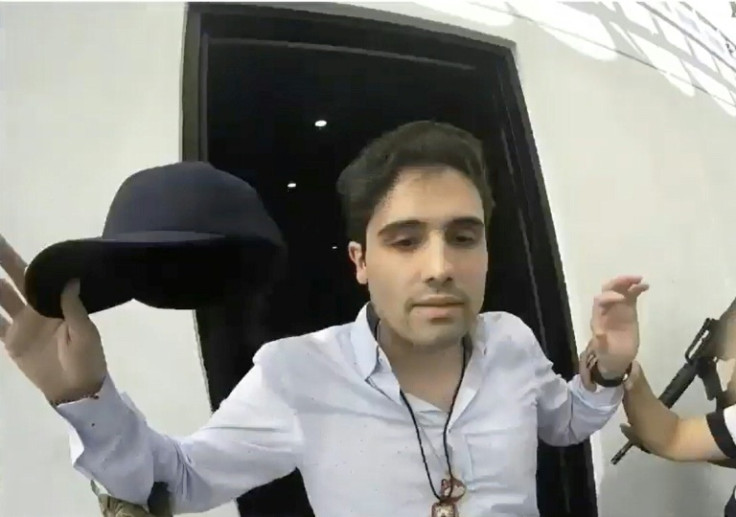Former DHS Official Says Relatives of 'El Chapo' May Seek U.S. Protections Under Humanitarian Parole Program
On May 9, a group of 18 people related to Joaquín "El Chapo" Guzmán surrendered to U.S. authorities in California

A former Department of Homeland Security official says the recent surrender of several relatives of Joaquín "El Chapo" Guzmán to U.S. authorities may be tied to a humanitarian parole program offered as part of Ovidio Guzmán López's plea agreement—potentially paving the way for more family members to come to the United States in the future.
In a recent interview, Oscar Hagelsieb, former head of Homeland Security Investigations (HSI) in Ciudad Juárez, Mexico, said the 17 members of the Guzmán family who crossed into the United States earlier this month "won't be the last."
Hagelsieb also said that, unlike in cases involving figures such as Ismael "El Mayo" Zambada and Rafael Caro Quintero, the relatives of Ovidio "El Ratón" Guzmán are expected to receive several protections typically granted to individuals admitted under humanitarian parole.
In an interview with investigative journalist Luis Chaparro, Hagelsieb said negotiations like this don't happen overnight.
"The agreement talks began almost a year ago," Hagelsieb said. "They offered protection not only to the sons of El Chapo—they offered it to a lot of people."
According to the former DHS official, there was a long-term strategy within the Sinaloa Cartel to protect certain members of the family, particularly El Chapo's younger sons. The plan involved the selective sharing of information, restructuring of the cartel, and family protection.
In the interview reported by Infobae México, Hagelsieb also suggested that other key associates of the Sinaloa Cartel—such as the armed wing known as Los Salazar—were reportedly given "permission" to cooperate with U.S. authorities in exchange for protection for their inner circle.
According to InSight Crime, Los Salazar functions as an armed wing of Los Chapitos and controls drug and migrant trafficking routes through Sonora and parts of Chihuahua. Its founder, Adán Salazar Zamorano, joined the Sinaloa cartel decades ago as a deputy to Joaquín "El Chapo" Guzmán.
Humanitarian parole
According to the U.S. Department of Justice, humanitarian parole is granted only in exceptional cases, typically for urgent humanitarian reasons or when there is a significant public benefit.
Individuals who cooperate with the U.S. government may be eligible for a range of benefits, provided their cooperation is considered both valuable and verifiable.
Among these benefits is humanitarian parole itself, which allows legal entry into the country for individuals who would otherwise be deemed inadmissible. In some cases, it also includes relocation to secure areas to protect witnesses and their families.
Cooperating individuals may be given new identities to conceal their pasts, along with temporary financial support to help them begin new lives. This support can include housing, education and, in some cases, medical assistance.
In certain instances, individuals may also be allowed to retain some assets, as long as those assets are considered clean and not directly tied to criminal activity.
As Hagelsieb notes, more of El Chapo's relatives are expected to surrender to U.S. authorities in the coming weeks in hopes of receiving these types of protections.
Meanwhile, Ovidio is expected to plead guilty to drug trafficking and money laundering charges during a court hearing in Chicago on July 9. His brother, Joaquín, is reportedly engaged in similar negotiations with U.S. prosecutors.
Originally published on Latin Times
© Latin Times. All rights reserved. Do not reproduce without permission.





















